What will you achieve with mRNA? Life-changing medicines, vaccines and more made possible by the latest improvements in mRNA and LNP technology.
Applications & ArticlesApplications & Articles
A wide range of applications
How is mRNA used?
There are many therapeutic applications that use mRNA. Some common ones are: stem cell therapy, vaccines, immuno-oncology, rare metabolic disorders, bone generation, gene editing, antibody therapy, chronic kidney disease, cultivated meat and crop science.
If you want to see more specific examples on how our products have been used by customers, go to our customer articles by clicking the button.
Customer & Application Articles
We are in awe of the work our customers do with our products. To honor this work, we have constructed this hall of fame, which also serves as a repository to learn from each other. What worked for them, may also work for you. In addition, we also added our RIBOPRO Application Articles to demonstrate a few cases on how our products can be applied across different projects.

Optimized lipid nanoparticles for pulmonary delivery of CRISPR/Cas9 targeting KRAS G12S in lung cancer

Characterization of RNA interference in the cnidarian Nematostella vectensis reveals partial target silencing but lack of small RNA amplification

Application note 1: Fluorescently Labelled SecNLuc mRNA for Quantification of Cellular Uptake and Activity

Application note 2: Fluorescently Labelled mRNA for Dual-Channel Super-Resolution Microscopy

Application note 3: mRNA yields uniform protein expression after only 3 hours, in contrast to plasmid transfection.
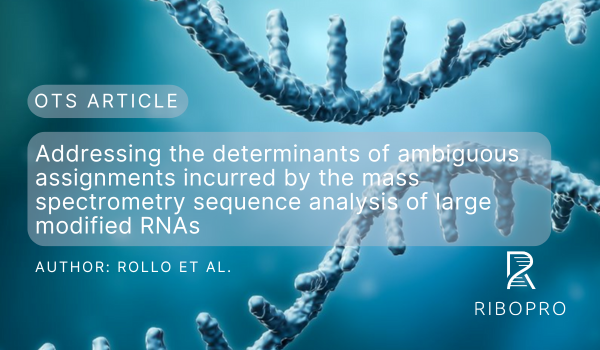
Addressing the determinants of ambiguous assignments incurred by the mass spectrometry sequence analysis of large modified RNAs
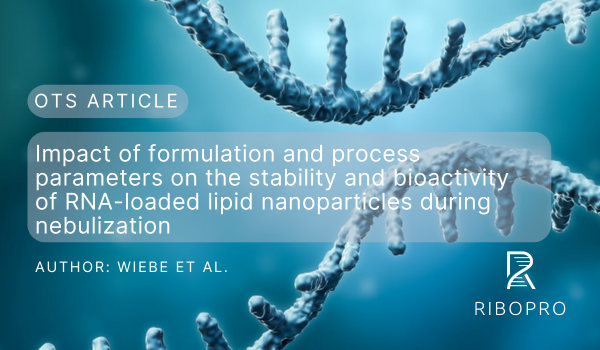
Impact of formulation and process parameters on the stability and bioactivity of RNA-loaded lipid nanoparticles during nebulization

Hybrid lipid nanoparticles derived from human mesenchymal stem cell extracellular vesicles by microfluidic sonication for collagen I mRNA delivery to human tendon progenitor stem cells
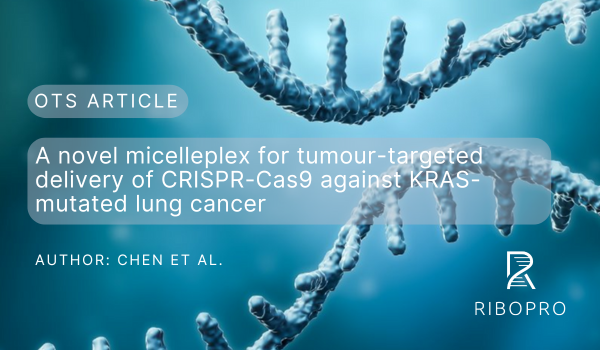
A novel micelleplex for tumour-targeted delivery of CRISPR-Cas9 against KRAS-mutated lung cancer
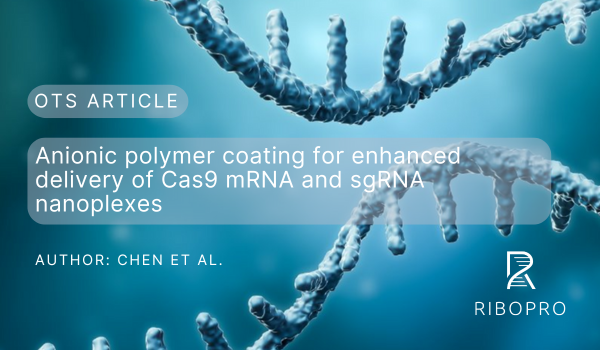
Anionic polymer coating for enhanced delivery of Cas9 mRNA and sgRNA nanoplexes
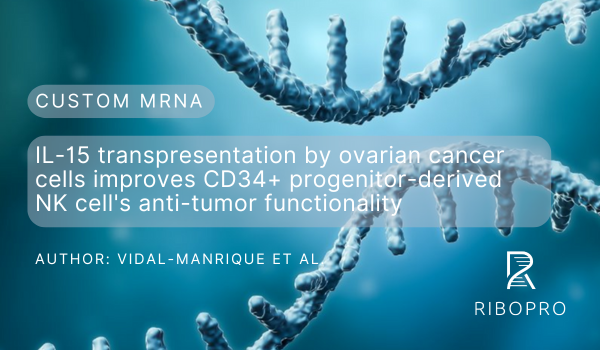
IL-15 transpresentation by ovarian cancer cells improves CD34+ progenitor-derived NK cell’s anti-tumor functionality
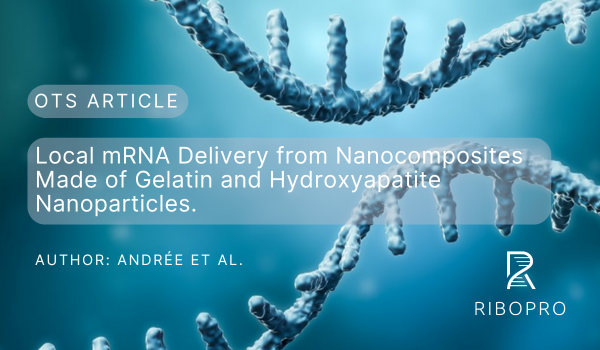
Local mRNA Delivery from Nanocomposites Made of Gelatin and Hydroxyapatite Nanoparticles.